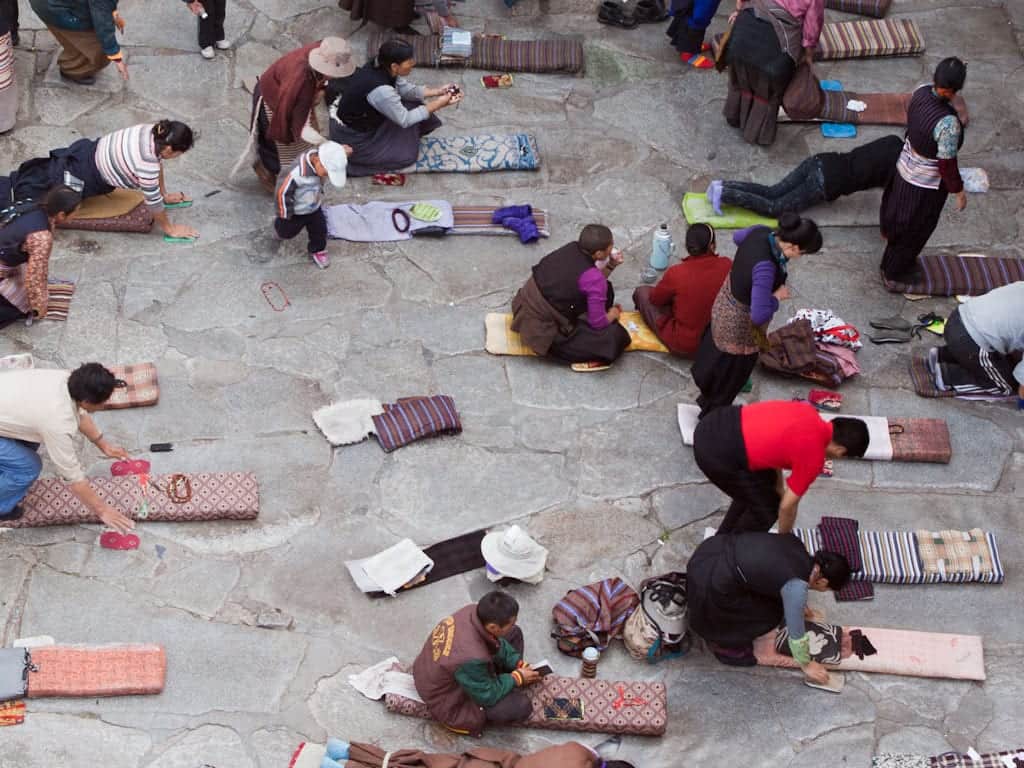Our Noble Living, Noble Caring, Noble Dying team met with Phakchok Rinpoche on a number of occasions in the past several years. In a conversation in New York, the team raised questions about dealing with physical and mental pain and suffering. During the dying process we may encounter both mental issues, such as forgetfulness or confusion, and also physical pain. How do we deal most effectively with these issues?
Physical and Mental Pain Causes Agitation
When we forget things, we may become agitated—and as practitioners we may worry that we will forget our own practices or what we have learned from our teachers. As caregivers, when we see people in this situation we need to care very gently—we may witness people becoming very nervous. And we may think that the mind is incapable—but Rinpoche explains that sometimes this confusion manifests as a part of the physical body’s collapse. So, if we gently remind them of their practice–then when the physical collapse completes, the mind can be very fresh. However, he reminds us there are so many types of death—we can’t predict exactly how that process will occur.
Accepting Some Amount of Pain to Keep Mental Sharpness
Also people may experience a great deal of pain, and in hospital settings, the healthcare team may medicate them heavily—almost to the point of unconsciousness. Rinpoche notes that this can interfere with our dying process. And many great practitioners will choose pain and a sharp mind over no pain and dullness. However, choosing pain over dullness can be a very tough choice at a critical point.
So, Rinpoche suggests that practitioners train in this regularly. First, we can acknowledge that all of us will at some point suffer some physical and mental pain. Whenever we experience physical pain—don’t immediately complain and reach for a pain-killer. Just learn to endure some physical pain—try to overcome that tendency to push the pain away. Instead, try to train gently in accepting a certain amount of pain.
For example, performing prostrations means we suffer a bit. But when we practice regularly, we know that we can get beyond the discomfort. So, if we train regularly in not running from small pains, we can be more accepting with the pain of death—and we may be able to keep our minds aware and sharp.
How Best to Help People With Dementia or Alzheimers?
Rinpoche says we have to be smart about how we communicate with people suffering with dementia. Even if we remember our patience, we don’t have unlimited time, so we need to be practical. So, we can communicate more in writing—make lists that we explain, but leave at the person’s bedside. We can make simple lists of instructions, or whatever we need to say, and then sign our name. However we need to accept the fact that the person will still forget. And we can’t fix that problem ourselves. But we can extend kindness without expectation.
So, just smile, be nice and kind, and very gently remind the person who we are and what we said. We’re seeing more of these issues in our modern times as people live longer. Unfortunately, brains also collapse—our diets are poor, and we’re living longer but not eating well.


